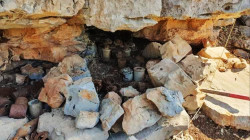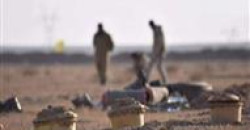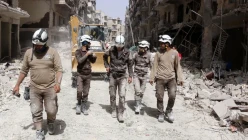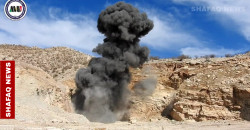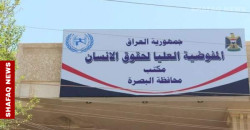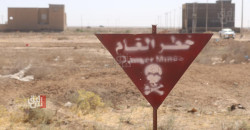UXO plague: Iraq’s hidden danger
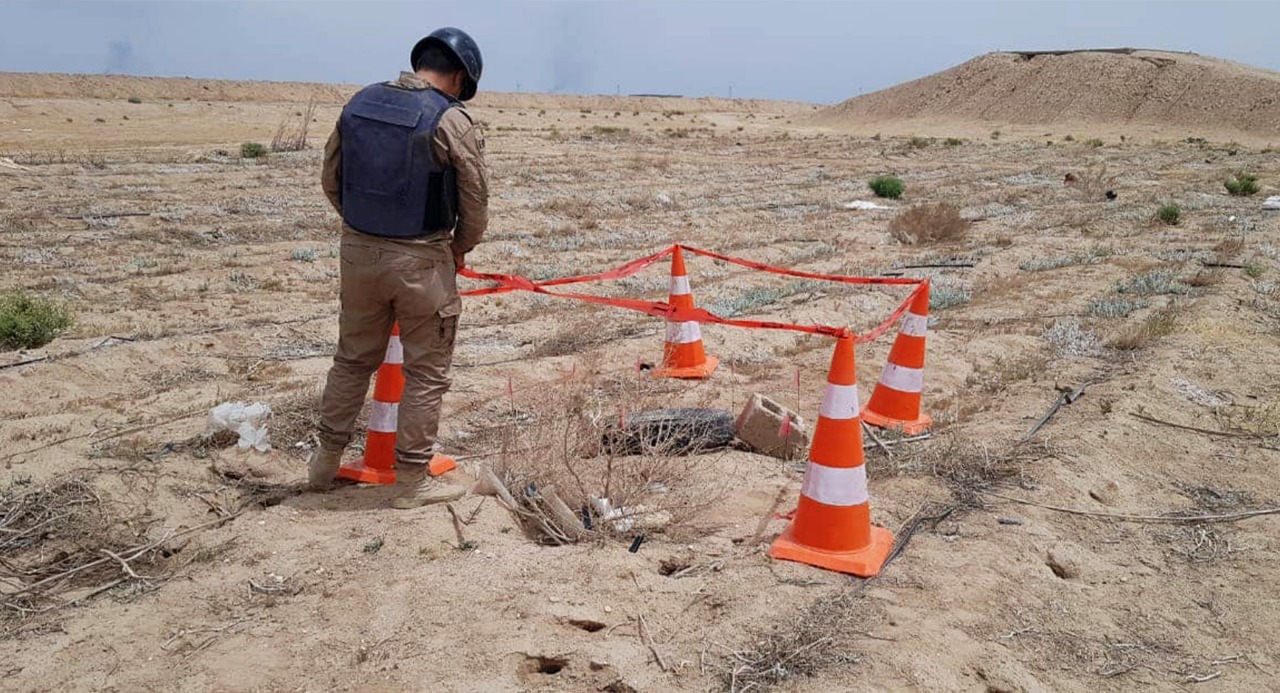
Shafaq News/ Decades of conflict have left Iraq contaminated with unexploded ordnance (UXO), posing severe risks to civilians, the environment, and economic recovery, the humanitarian organization Humanity & Inclusion has warned.
Iraq’s history of war—including the Iran-Iraq War (1980–1988), the Gulf War (1990–1991), the 2003 US-led invasion, and the battle against ISIS (2014–2018)—has resulted in widespread contamination from landmines, cluster bombs, improvised explosive devices (IEDs), and chemical pollutants.
The most affected regions include Kirkuk, Saladin, Nineveh, Diyala, and Al-Anbar, where ISIS extensively used IEDs and landmines. Returning families, farmers, and reconstruction teams face daily risks from hidden explosives buried in fields, roads, and buildings.
Slow Progress in Mine Clearance
Despite ongoing demining efforts, progress remains slow due to security concerns, extensive contamination, and funding shortages. The Iraq-Iran border remains one of the world’s most heavily mined areas, while cities like Mosul and Fallujah still contain UXO inside buildings, endangering civilians.
In Saladin, where Humanity & Inclusion has been active since May 2023, demining teams have cleared more than 2.18 million square meters of land, neutralizing 1,730 IEDs and destroying 1,044 pieces of UXO.
Beyond the immediate physical threat, buried explosives contain hazardous chemicals that can leach into soil and water, contaminating food supplies and harming biodiversity. Long-term exposure to pollutants such as white phosphorus and depleted uranium has been linked to respiratory diseases, cancer, and neurological disorders, with risks extending to future generations.
Compounding these dangers are ongoing security risks in extremist-controlled areas and the sheer scale of contamination, which experts warn could take decades to fully clear. Meanwhile, funding shortages and limited resources continue to hamper progress, as demining requires specialized expertise and extensive coordination.
The report concluded with a call for sustained international support to accelerate demining efforts and protect Iraqi communities from the enduring threats of war remnants.
